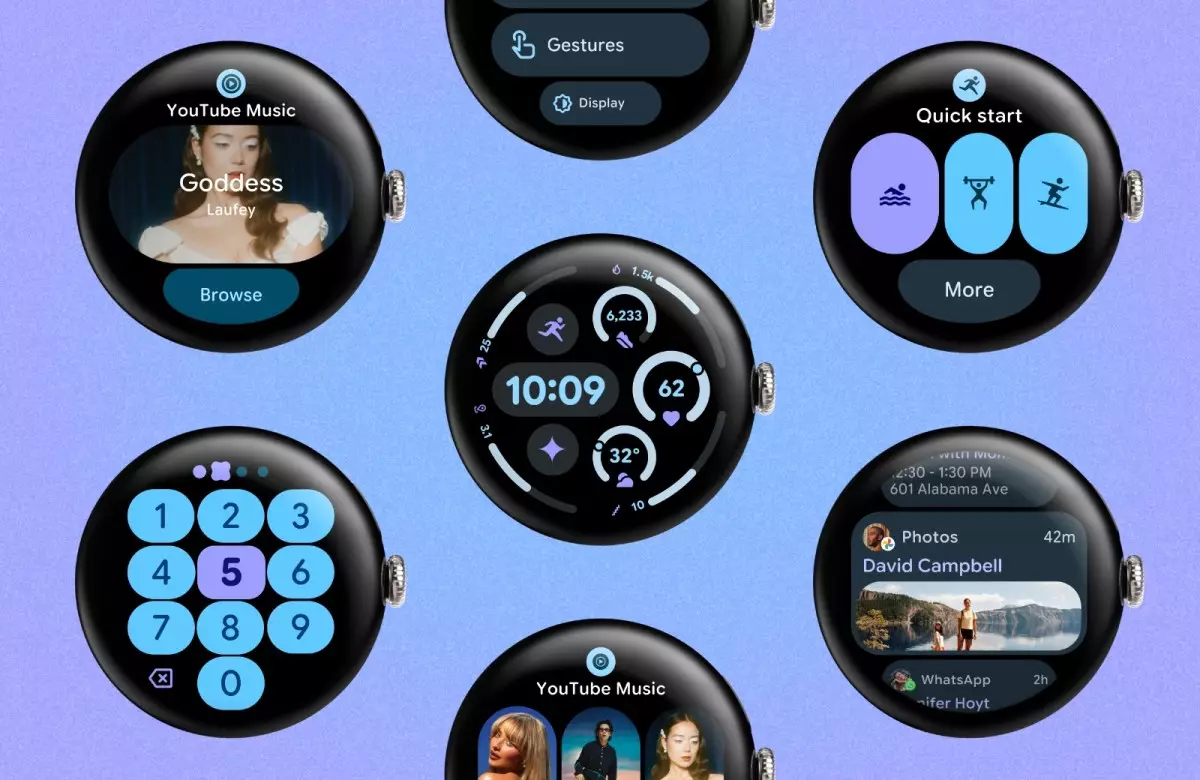Google’s latest announcement signifies a strategic push toward making AI an integral part of our daily lives, starting with wearable technology. The rollout of Gemini to Wear OS devices marks a pivotal step in transforming smartwatches from simple notification hubs into intelligent assistants capable of complex reasoning. Unlike traditional voice assistants, Gemini aims to provide a more conversational and context-aware experience, bridging the gap between human needs and digital assistance. This move underscores Google’s recognition that wearable devices are becoming critical touchpoints for personal AI interactions, positioning the company ahead of competitors who are still optimizing basic voice functionalities.
What’s particularly compelling is Google’s focus on seamlessly integrating Gemini across various brands and devices, including Pixel, Samsung, OPPO, OnePlus, and Xiaomi. By doing so, Google is fostering a more unified ecosystem, reducing fragmentation and encouraging user adoption. The ability to activate Gemini through simple voice commands or a tap underscores a user-centric philosophy, making advanced AI accessible even with messy or occupied hands—a common scenario amid busy routines. This feature aligns with the broader trend of contextually aware AI, capable of assisting users in multitasking environments.
However, the ethical and practical implications must not be overlooked. With Gemini’s enhanced capabilities come increased concerns about privacy and data security, especially as personal details and task histories are stored for better assistance. While Google emphasizes features like remembering parking spots or reminding about grocery shopping, the potential for misuse or data breaches looms. As such, the success of Gemini hinges not just on its technological prowess but on transparent data policies and robust security measures.
Transforming Search: The New Era of Visual and Contextual Inquiry
Google’s integration of AI-focused features into Circle to Search signifies a crucial evolution in visual search capabilities. The innovation represents Google’s effort to reconstruct how users interact with digital information, moving from passive querying to active exploration. By enabling users to circle, highlight, or scribble on screen snippets, Google transforms ordinary visual interactions into dynamic, conversation-driven insights. The AI Overview feature introduces a layer of sophisticated reasoning, allowing users to ask follow-up questions and deepen their understanding without switching contexts or apps.
This shift toward AI-enhanced visual search redefines convenience and efficiency. For example, a user in a restaurant might instantly identify a dish or delve deeper into nutritional information without interrupting their meal. Similarly, gamers can leverage this technology to analyze gameplay or identify characters, making mobile gaming not just entertainment but a tool for strategic learning. These capabilities could democratize access to complex information, allowing users of varying technical proficiency to benefit from AI insights effortlessly.
Moreover, the expanding presence of AI Mode within Google Lens and other search components suggests a future where visual and textual information are seamlessly intertwined. Users no longer need to manually seek out detailed explanations—AI will proactively provide contextual, well-formatted summaries complemented by visuals. This can make learning, troubleshooting, or exploring new topics vastly more accessible, fostering a more engaged and informed user experience.
Nonetheless, this technological leap invites skepticism regarding its depth and reliability. AI overviews, while improved for visual clarity, still depend heavily on data sources and algorithmic interpretations. Over-reliance on these summaries could lead to superficial understanding if not critically evaluated, raising concerns about misinformation or oversimplification.
Strategic Positioning and the Future Outlook
Google’s commitment to replacing Google Assistant with Gemini across all platforms signals a fundamental shift in its AI strategy. It reflects a broader industry trend where smart assistants become smarter—more conversational, context-aware, and capable of handling multifaceted tasks. The inclusion of features like tracking performance in multiple apps and creating multimedia content demonstrates an ambition to turn these tools from mere helpers into creative and organizational partners.
The free offer of a year-long Google AI Pro subscription for Pixel 9 Pro owners is a savvy move that aims to build loyalty and showcase the platform’s advanced capabilities. Whether it’s generating short videos or describing ideas, these tools potentially redefine user content creation, making sophisticated AI accessible without additional cost.
Critically, Google’s focus appears to be on embedding AI deeply into everyday technology rather than offering superficial updates. This approach could accelerate user dependency on Google’s ecosystem, raising questions about market dominance and user autonomy. While on the surface, these features seem aspirational and user-friendly, they also consolidate Google’s grip on the information landscape, which could stifle competition and innovation from smaller players.
Ultimately, Google’s strategic moves with Gemini and the enhanced search experiences are indicative of a future where AI integration is inevitable and omnipresent. While this heralds exciting possibilities for productivity and learning, it also demands vigilance regarding privacy, data ethics, and the societal impact of increasingly autonomous digital assistants. These developments are a reminder that technology’s promise must be balanced with responsibility and foresight.

